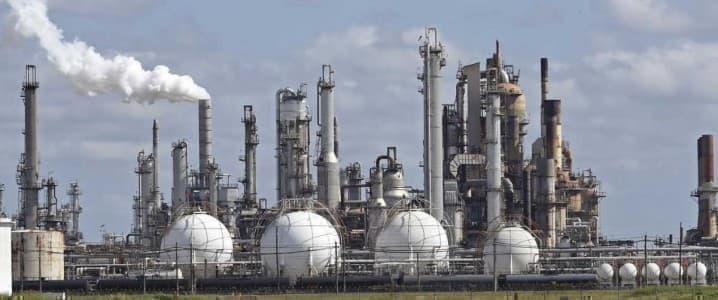Global oil and gas companies could be facing a major legal threat if the Dutch court ruling on Royal Dutch Shell sets an international precedent. In a case by Dutch NGO Milieudefensie (Environmental Defense) against Royal Dutch Shell (RDS), the court ordered that the oil giant will have to reduce its CO2 emissions by 45% from 2019 levels.
Shell has always claimed that it is doing its utmost to keep in line with both the Paris Agreement and growing societal pressure. The court order, however, has made meeting these goals a legal prerequisite. According to the court, Shell is not only responsible for its own emissions but also needs to act prudently and do its utmost to have its suppliers and clients reduce emissions as well. This is significant as the ruling would mean Shell is now responsible for the whole value chain of operations. That means it is legally responsible for not only the actions of its suppliers but also for the actions taken by clients and consumers.
The reasoning behind this court order is something that cannot be overlooked. The Dutch court was acting based on reports from the IPCC and the Paris Agreements that Shell is liable for possible human rights violations. Those violations would be based on international human rights agreements and interpretations that mean that citizens could claim HR violations based on climate change threats. It remains unclear how solid that legal claim is, and Shell will certainly have its own legal team review it. It is easy to see this ruling as being politically driven, especially as Shell’s operations in the Netherlands are not a direct threat to Dutch citizens and a Dutch court may not be in a position to address concerns in other places around the world.
For Shell, if the legal order is put in place without any other options available, the company could be heading towards a very stormy future. One of the possible results of the court ruling is that investors and shareholders will have to reconsider their Shell holdings. In an already financially constrained hydrocarbon sector, added pressure on Shell could have a significant influence. The potential reduction of its operations and oil and gas output would threaten its overall financial attractiveness and shareholder value. Decreasing emissions volumes by 45% by 2030, as is now being ordered, could mean a slimmer, different, and potentially weaker Shell by 2030. For the broader sector, this case is evidence of a larger threat, the threat of similar rulings against other European and US-based IOCs and independents. A possible unwanted outcome of all of this is that IOCs or listed oil and gas companies will be facing a future in which investors and shareholders will be reconsidering their investments.
One of the main criticisms being levied against the ruling is that it is evidence of hydrocarbon producers being uniquely targeted by these sorts of broad legal cases. It is also important to note that the human rights of many citizens around the world will be impacted by the lack of access to hydrocarbon-based revenues and the chance of fueling an energy transition with successful hydrocarbon projects.
One group that is likely to be celebrating this ruling is the national oil companies around the world. Rulings like this reduce the market power of IOCs and independents, leaving national oil companies and private-equity to supply, produce, and rule oil and gas in the future. When looking at the legal basis of the court order, it could be argued that moving all oil and gas volumes into the hands of national oil companies could result in exactly the opposite of what the court was attempting to achieve. Adding pressure to IOCs could actually result in a slow down of the energy transition overall. To back NGOs or other political pressure groups without assessing the pivotal role of hydrocarbons in the global economy is very risky, and is unlikely to result in the desired outcome.
By Cyril Widdershoven for Oilprice.com
More Top Reads From Oilprice.com:
- U.S. Shale Is Finally Giving Shareholders A Payday
- The $87 Billion Chinese Car Maker That Hasn’t Sold A Single Car
- Oil Prices Fall As Iran Claims Sanctions Will Be Lifted



















US oil giant ExxonMobil CEO Darren Woods and Occidental Petroleum CEO Vicky Hollub succinctly and eloquently made their position very clear at the CERAWeek conference in March this year when both said that “reducing carbon emissions from fossil fuels and not the actual use of fossil fuels, offers the best way to combat climate change”.
The notion of zero emissions by 2050 or even 2100 is an illusion. It will never happen because oil and natural gas will continue to drive the global economy throughout the 21st century and probably far beyond.
On their own, renewables aren’t capable of satisfying global energy demand because of their intermittent nature. Moreover, global energy transition won’t succeed without major contributions from both natural gas and nuclear energy.
The Battle for reserves and dominance in the global oil market between IOCs and NOCs has been going on since the founding of OPEC just over 60 years ago and certainly far long before the Dutch court ruling. It will ultimately be won by the NOCs because of the difficulty if not inability of the IOCs to replace their reserves as a result of rising reserve nationalism.
Dr Mamdouh G Salameh
International Oil Economist
Visiting Professor of Energy Economics at ESCP Europe Business School, London